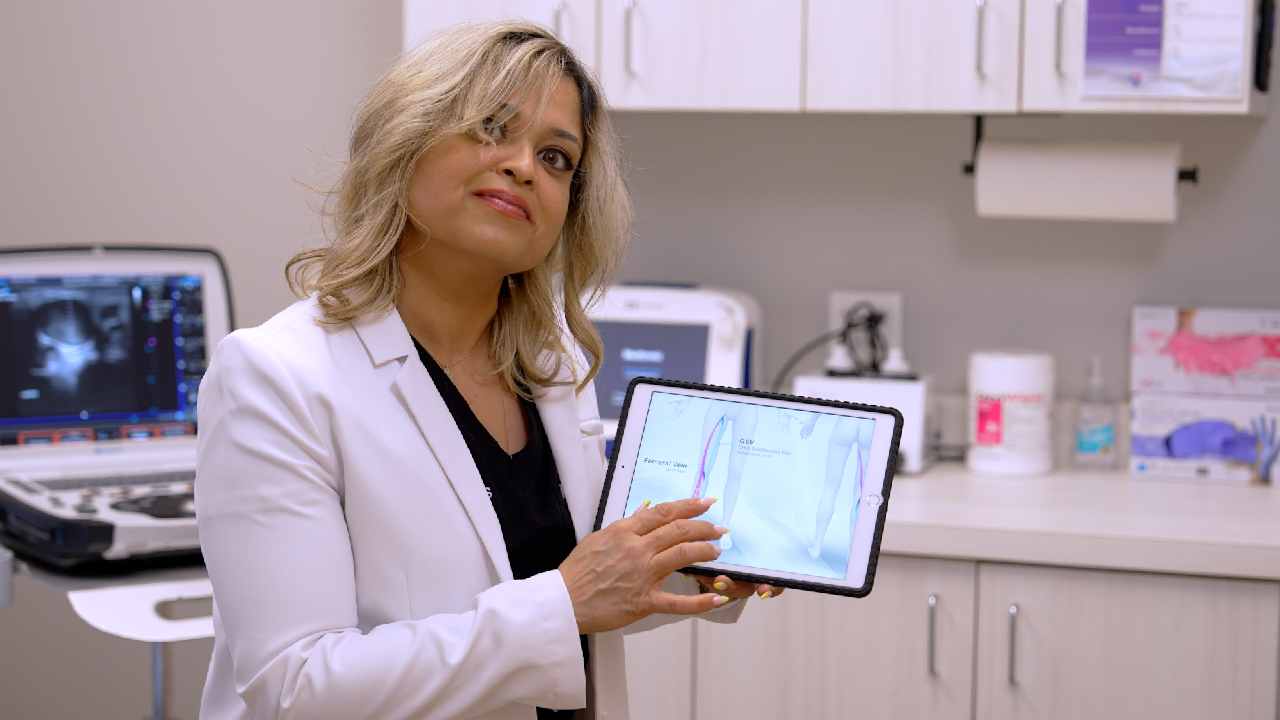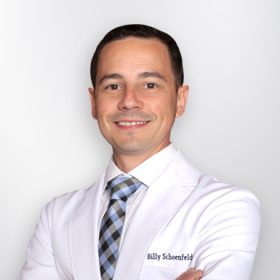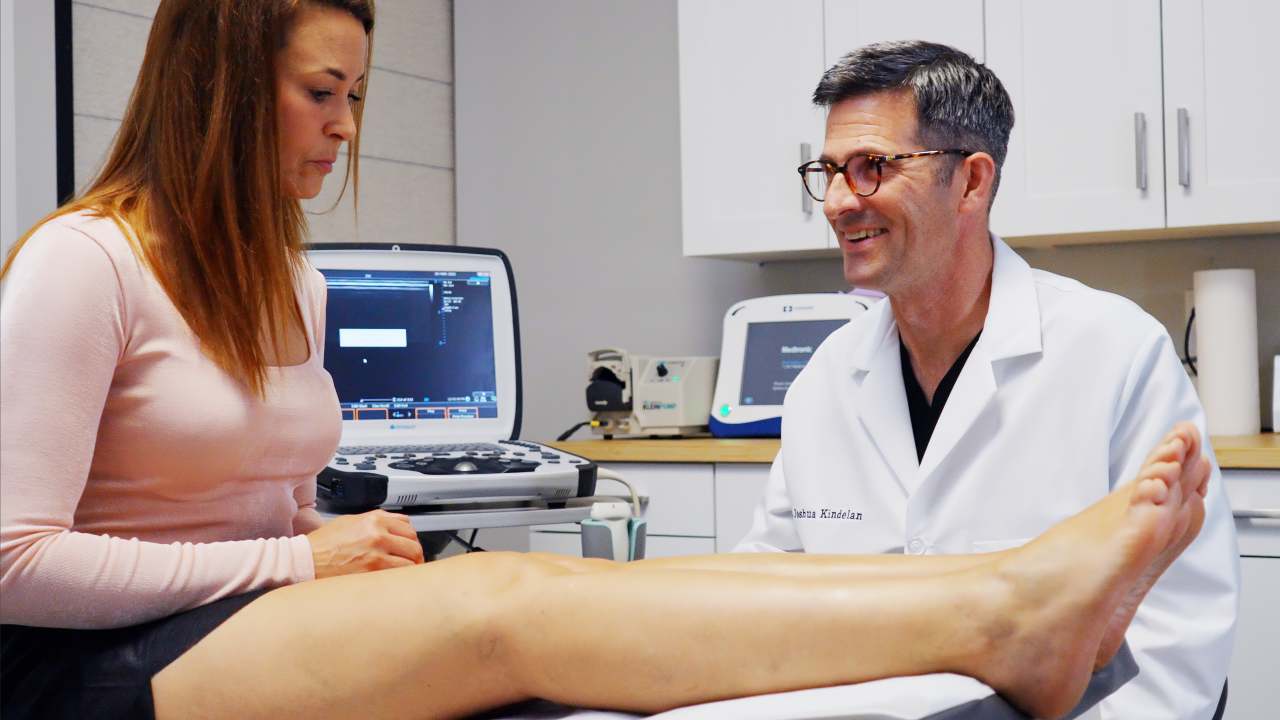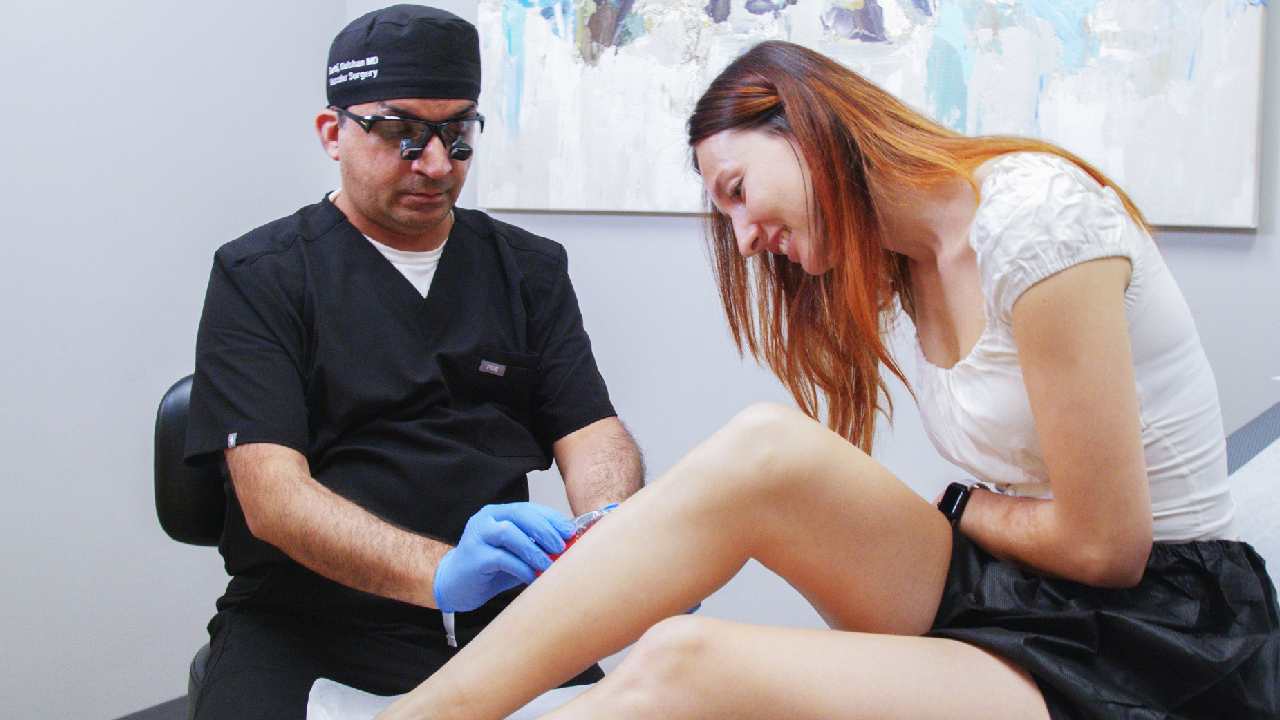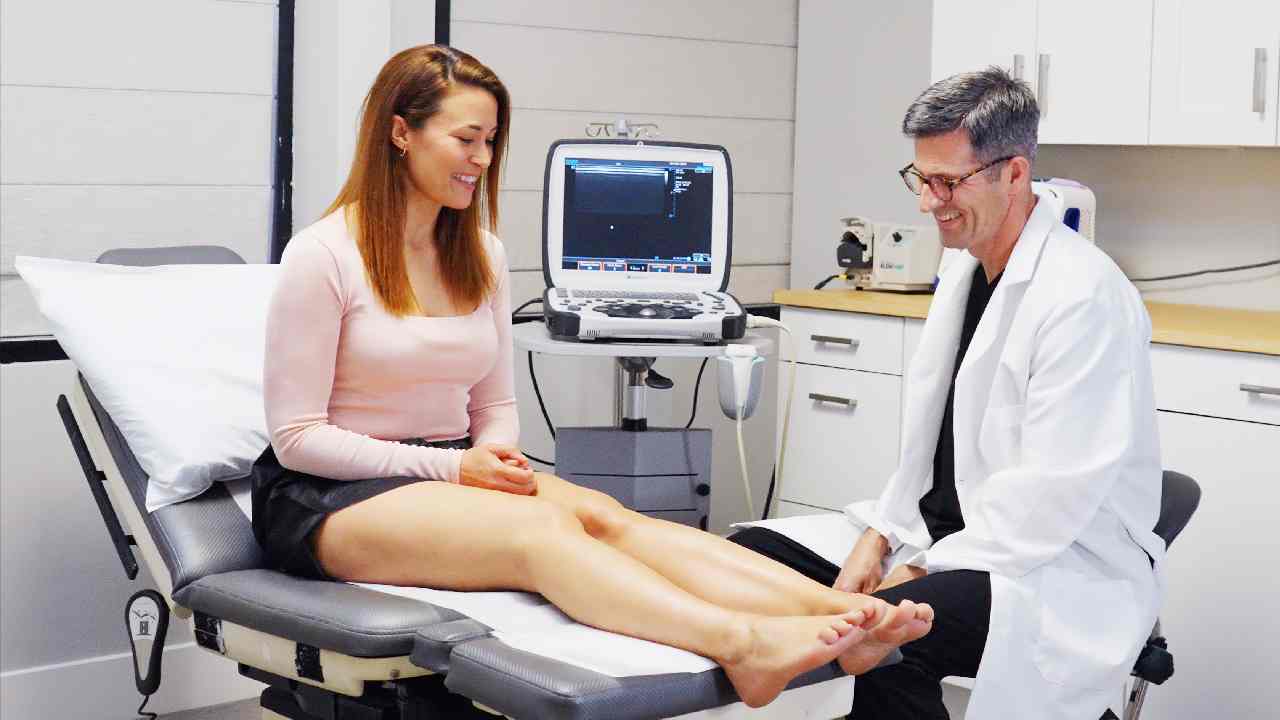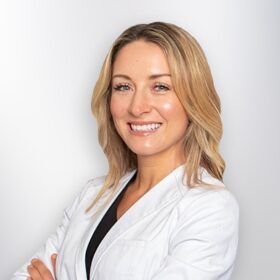
How Do Vein Doctors Diagnose Varicose Veins?
If you’ve noticed swollen, bulging veins on your legs or experienced discomfort, you may be wondering if you’re dealing with varicose veins. The signs of varicose veins are hard to miss. They appear as dark, twisted veins near the surface of your skin, and may be accompanied by heaviness in the legs, aching, or even swelling. You might have also experienced cramps, itching, or even skin discoloration around the affected area. Varicose veins are not just a cosmetic concern—they can lead to more serious health issues if left untreated.
When seeking answers, you want to ensure your varicose veins are accurately diagnosed so you can pursue the right treatment plan. At Vein Treatment Clinic, our board-certified vein doctors are experts in diagnosing and treating varicose veins, using the most advanced techniques. This article will guide you through how our vein doctors diagnose varicose veins.
Are you interested in getting more information about your condition or getting a treatment?
Fill the form below to start!
Step 1: Initial Consultation and Symptom Review
During the first step in varicose vein diagnosis, the vein doctor will ask you detailed questions about your medical history and any symptoms you’ve been experiencing. You will be asked about the onset of your symptoms—whether the swelling, pain, or discomfort in your legs have persisted or worsened over time. Understanding your specific symptoms helps the vein doctor determine if varicose veins or another underlying condition may be at fault.
Your vein doctor will also inquire about any family history of vein issues, as varicose veins can be hereditary. Other lifestyle factors, such as whether you stand or sit for long periods at work, will also be discussed, as these can contribute to the development of varicose veins.
Step 2: Physical Examination
After reviewing your symptoms, your vein doctor will conduct a physical examination to assess the appearance of the veins and check for signs of complications. During the exam, they will look for the typical visual signs of varicose veins—large, visible veins that bulge from the skin. In addition, they will check for other symptoms like swelling, changes in skin color, or sores on the legs, which could indicate more severe vein problems.
Your vein doctor may ask you to stand up for part of the examination to see how your veins behave when gravity is at play. Standing can highlight the bulging veins or the pooling of blood in your legs, which is a telltale sign of varicose veins. The physical examination will also help determine if there are any other conditions that may be contributing to your symptoms.
Step 3: Diagnostic Tests to Assess Vein Function
Duplex Ultrasound Is the Primary Diagnostic Tool
Once the initial examination is complete, the most crucial step in diagnosing varicose veins is a duplex ultrasound. This is the primary diagnostic tool used at Vein Treatment Clinic to evaluate the function of the veins in your legs. The duplex ultrasound combines ultrasound imaging with Doppler technology to show the structure and the blood flow in the veins. The goal is to identify malfunctioning veins, including venous reflux, which occurs when the valves in the veins are not working correctly, causing blood to flow backward and pool in the veins.
During the ultrasound, the technician will apply a special gel to the area being examined, from the groin to the ankle. This gel helps the ultrasound probe make better contact with your skin, ensuring that clear images of your veins are captured. The ultrasound probe will then be gently moved over the area, and your vein doctor will monitor the images to see how well the blood flows through your veins. This process provides detailed, real-time visuals of your vein structure and function, helping your vein doctor pinpoint the exact cause of your varicose veins.
We Do Not Use Standing Ultrasounds
While some vein clinics may use standing ultrasounds to diagnose varicose veins, at Vein Treatment Clinic, we perform all of our ultrasounds while you are lying down. This is because lying down allows for more accurate images of how blood flows through your veins without the influence of gravity, which can distort results. However, in certain cases, if your vein doctor believes standing images may provide additional useful information, exceptions can be made.
We Do Not Perform the Ankle Brachial Index Test
It’s important to clarify that Vein Treatment Clinic does not perform the Ankle Brachial Index (ABI) test, as this test is primarily used to assess arterial health, not venous function. The ABI test measures blood flow in your arteries to check for signs of peripheral artery disease (PAD), which is different from vein problems like varicose veins. Because varicose veins are a venous issue, the ABI test is not relevant in diagnosing this condition.
Step 4: Treatment Plan Development
Once your duplex ultrasound results are in, your vein doctor will review the findings with you. The ultrasound helps them determine which veins are affected, the extent of the damage, and the best vein treatment options available. Your vein doctor will consider factors such as the size and location of the varicose veins and your symptoms and overall health.
Vein Treatment Clinic offers a range of minimally invasive treatments for varicose veins, including sclerotherapy, endovenous laser ablation, radiofrequency ablation, and more. Based on your diagnosis, your vein doctor will develop a personalized treatment plan to address your specific needs. If you’re wondering how insurance works for vein treatments, we’re happy to verify your insurance details before your consultation.
Accurate Diagnosis Leads to Effective Treatment
Diagnosing varicose veins at Vein Treatment Clinic is essential for a thorough and accurate assessment, ensuring your vein treatment plan is tailored to your unique condition. Accurate diagnosis allows our expert vein doctors to develop personalized treatment plans that effectively address your varicose veins, helping you regain comfort.
If you’re experiencing symptoms of varicose veins, don’t hesitate to reach out to Vein Treatment Clinic. Our board-certified vein doctors are here to help. Visit your nearest vein treatment clinic today to schedule a consultation and start your journey to better vein health.
FEATURED POSTS BY VEIN DOCTORS









